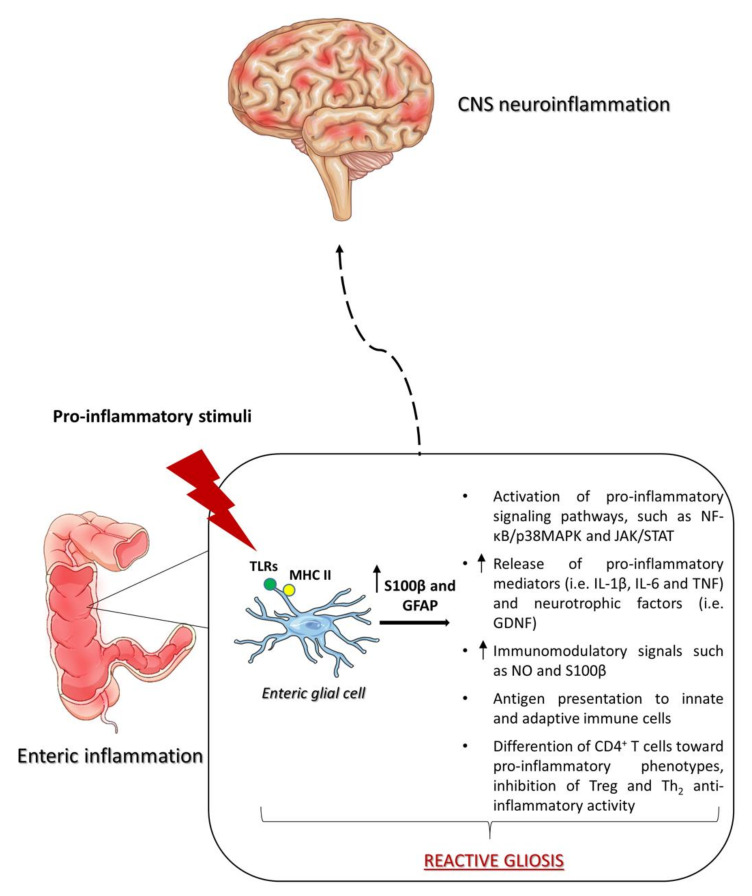Figure 2.
Role of EGCs in intestinal and CNS inflammation. In the bowel, pro-inflammatory stimuli, including IL-1, IL-6, and LPS elicit a pathological activation of the enteric glia, known as “reactive gliosis”. As a consequence, the expression of glial markers, such as GFAP and S100β, increase significantly, triggering the release of pro-inflammatory cytokines (i.e., TNF, IL-1β, and IL-6), glial cell-derived neurotrophic factors (i.e., GDNF), and other immunomodulatory signaling molecules, including NO and S100β. In addition, the activated EGCs act as antigen-presenting cells at the neuron–epithelial interface, triggering an abnormal activation of CD4+ T cells. This cascade of events amplifies the pro-inflammatory environment, intestinal barrier damage, and neurochemical changes leading to a neuroinflammatory response that, somehow, ascends to the CNS. Abbreviations: CNS, central nervous system; EGC, enteric glial cell; GDNF, glial cell-derived neurotrophic factor; GFAP, glial fibrillary acidic protein; IL, interleukin; LPS, lipopolysaccharide; MHC II, major histocompatibility complex II; NO, nitric oxide; TLRs, toll-like receptors; TNF, tumor necrosis factor.

